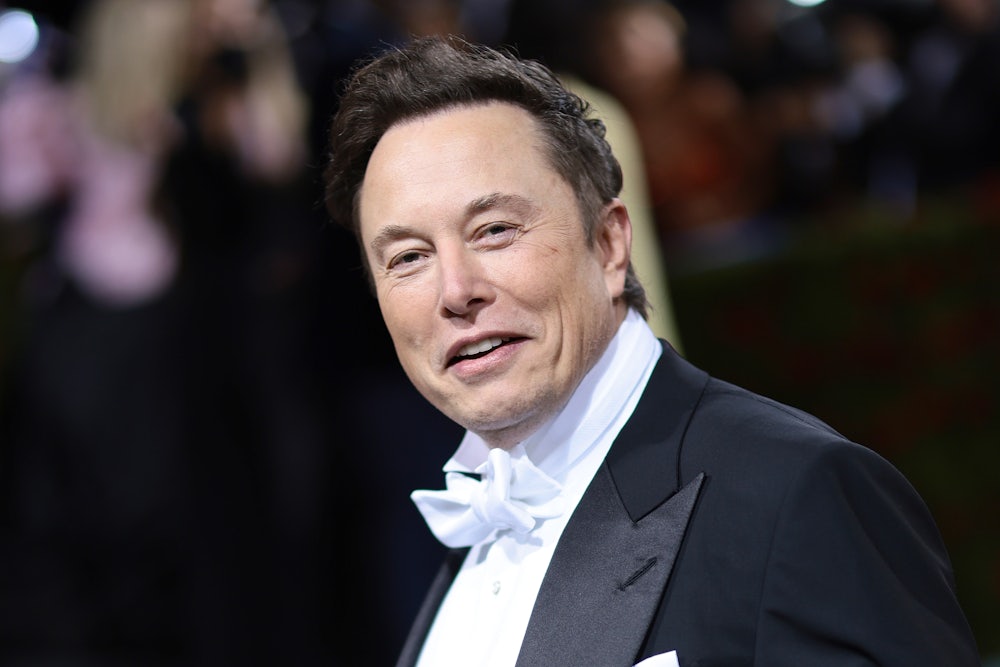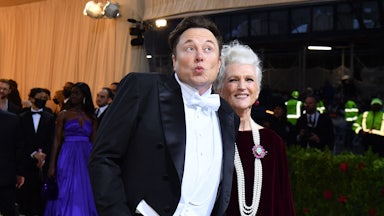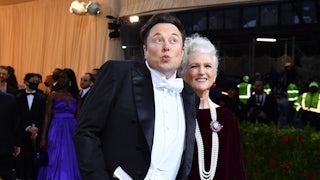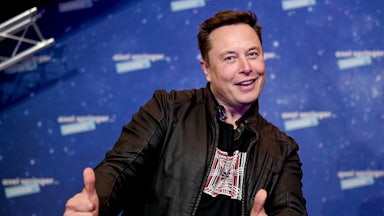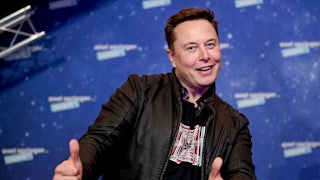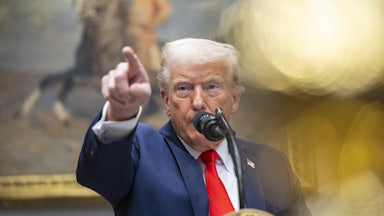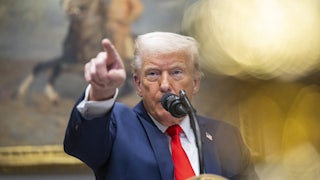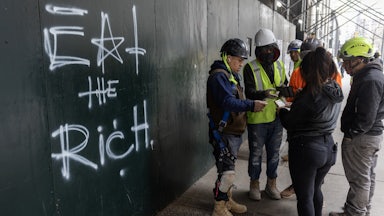Three months ago, Elon Musk said he had to buy Twitter in order to save it—and, by extension, free speech in America and also the world. The site had become too siloed and too partisan for his liking. Above all, he believed the hoary social media platform was betraying the fundamental values of the internet. To unlock the “tremendous potential” of Twitter, it had to have more speech, less moderation, and fewer fake accounts.
For Musk’s critics—most of whom had a better sense of how the site actually worked than the world’s richest man did—his plans were a recipe for disaster. Indeed, one common refrain in the spring was that Musk would, inevitably, ruin the social network. This was always something of a bold opinion, given that Twitter has—for a very long time—been a joyless hellhole.
But the lamentations of Musk’s critics were persistent and not entirely unjustified. The Tesla mogul has, in recent years, trollishly lurched toward the right and grown increasingly erratic (and, perhaps not coincidentally, increasingly online). He has lately taken to routinely offering up vague statements about the need to protect “free speech,” which largely seems to amount to combining less content moderation with restoring the accounts of several banned figures from the far right, including former President Donald Trump. Twitter has never gotten a handle on its harassment problem, and Musk’s one big idea for the platform was basically to make that much worse than it already is. Musk’s own record on free speech, by the way, is appalling: Workers at his other businesses have been fired for criticizing him or for trying to unionize.
The mere fact that the world’s richest man was on the verge of buying the most influential—though far from the largest—social network is its own kind of chaos. Plutocratic control of online platforms is always somewhat concerning. But it was especially alarming that the plutocrat in question is a man with a growing rightward orientation, who is keenly interested in specifically restoring the accounts of authoritarian extremists who earned their bans through repeated violations of the rules. “Musk’s reasons for taking control of Twitter aren’t about free speech,” wrote Greg Bensinger, a member of The New York Times’ editorial board. “It’s about controlling a megaphone. With his legion of fans, Mr. Musk will command a gigantic megaphone and be free to plug his own investments, pooh-pooh sound health regulations, and shout down critics.”
All that being said, the response to Musk’s plans from many corners reached a level of panic that exceeded the stakes. Even before the deal had closed, Musk was depicted as a madman, pouring gasoline everywhere and reaching for a match. We were on the verge of a five-alarm fire in Twitterville. But one thing seemed more or less certain to nearly everyone, except perhaps among Musk’s die-hard stans and right-wing fans: With Musk in charge, there would be carnage. Twitter, as we knew it, would be destroyed. Employees and users alike would flee the wreckage for greener pastures, leaving nothing behind but a passel of right-wingers and Elon himself.
In a sense, that wreckage has come about, but not in the way Musk’s critics and doomsayers predicted. Three months after Musk launched his gambit, Twitter hasn’t been ruined per se. But it is in a state of shambles. As The New York Times’ Kate Conger and Mike Isaac reported earlier this week, Twitter is now far worse off than it was when Musk agreed to buy it. “With each needling tweet and public taunt, Mr. Musk has eroded trust in the social media company, walloped employee morale, spooked potential advertisers, emphasized its financial difficulties, and spread misinformation about how Twitter operates,” they wrote. Employees are fleeing the firm. Its stock has plummeted. And the company is now suing Musk as he tries to back out of the deal over vague concerns about bots and fake accounts.
This lawsuit may drag on for years in the Delaware Court of Chancery; no one knows what will happen. It could savage Musk’s net worth, forcing him to pay a colossal sum of money to Twitter; or—perhaps the worst-case scenario, at this point—compel him to complete his purchase. Either way, Twitter is likely to emerge the worse for wear.
This should come as no surprise. Musk has spent the last several months on a scorched-earth campaign, publicly denigrating the company and mocking its leaders. More important, however, is the fact that while Twitter is profoundly influential, it has never been particularly profitable. Twitter has lost money in seven of the last nine years; 2022 would have likely been a struggle even without the ongoing feud with Musk. But one reason why Twitter agreed to sell to Musk was because of his irrational exuberance: There aren’t many people who want to buy companies that don’t make much money and don’t have a plausible plan to arrest the downward trend. Musk—who is fanatically obsessed with Twitter and who also happens to have far more money than he knows what to do with; essentially a hobbyist—might be the only person in the world with an interest in owning such a company. Twitter would have been hard-pressed to find a buyer before Musk arrived to put the firm through his unique brand of fresh hell. Now that Musk’s ownership seems profoundly unlikely, it will have a much harder time finding another suitor—the feud with Musk will likely continue to cause its stock price to fluctuate, if not outright tank.
The result is chaos and uncertainty and conflict. Yes, broadly speaking, this is what many expected when Musk agreed to buy Twitter. But it’s becoming a self-reinforcing ruination engine; the circumstances are arguably more damaging to the company’s long-term financial prospects than the initial panic about Musk merely pushing it in a rightward direction.
Twitter has more or less successfully coped with the—always overstated—impression that it is a company that has put its thumb on the scales for the left. (The simple fact of the matter is that the platform has outwardly catered to conservatives and the right in a number of ways that leftists envy.) These perception shifts—along with the idea that liberal users might abandon Twitter in favor of some lefty version of Parler, Gab, or Truth Social—weren’t the existential threat that some claimed might be on the horizon. But in a few short months, Musk has actually done what his critics feared, all without setting foot in a boardroom to lay down even a single new business decision. He’s severely damaged Twitter’s product, its reputation, and, perhaps above all, its business. Musk was never going to stumble on a way to “unlock” Twitter’s “potential,” let alone achieve the starry-eyed goal of quintupling its revenues. But you can say one thing for Elon: Only he could wreck a company in so short a time.
